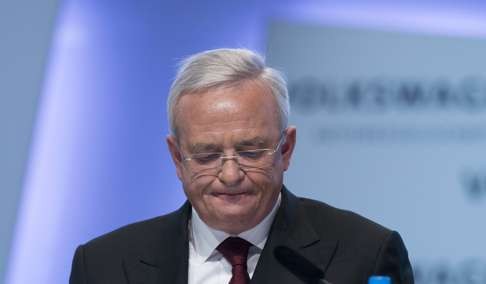New | From VW to HSBC, there’s a simple reason why so many CEOs fail to spot rogue behaviour
Information overload is making us oblivious to what’s often in plain sight

In the wake of practically every corporate or political crisis two questions are asked: First, was the person at the top aware of the problem and second, if so, what did they do about it?
The person at the top is key because there was a time when the “buck stops here” principal was thought to prevail. In other words someone was prepared to assume ultimate responsibility.
Nowadays the great panjandrums who run the world’s biggest companies get visibly agitated when asked to explain why things occurred on their watch. A case in point was the response of Stuart Gulliver, HSBC’s chief, when he was hauled before a British parliamentary committee looking into the banking crisis. Gulliver argued that he could not be held responsible for everything that went on in his bank: “Can I know what everyone of 257,000 people is doing?” he asked, concluding, “Cleary I can’t”.
More specifically questions were asked about whether Martin Winterkorn, the former Chief Executive of Volkswagen, was aware of an email dated May 24 2014, that specified “irregularities” with US emissions tests for two VW diesel vehicles. This memo was part of what VW described as Winterkorn’s “extensive weekend email”; one of the reasons proffered for why he may have overlooked it. Other internal documents, that subsequently came to light, suggest that VW went to some efforts to cover its tracks as the vehicle testing scandal mushroomed.
Information overload is no excuse for ducking responsibility
Responsibility is being dodged because those at the top insist they are suffering from information overload. This affects everyone, as the days are long gone when information distribution was more restricted and far lower in volume, consisting mainly of phone calls, possibly faxes and telegrams and big piles of documents. We are now bombarded by emails and other electronic messaging which, in theory, is more convenient and efficient but in practise may be producing a volume of information that is too vast to absorb.
